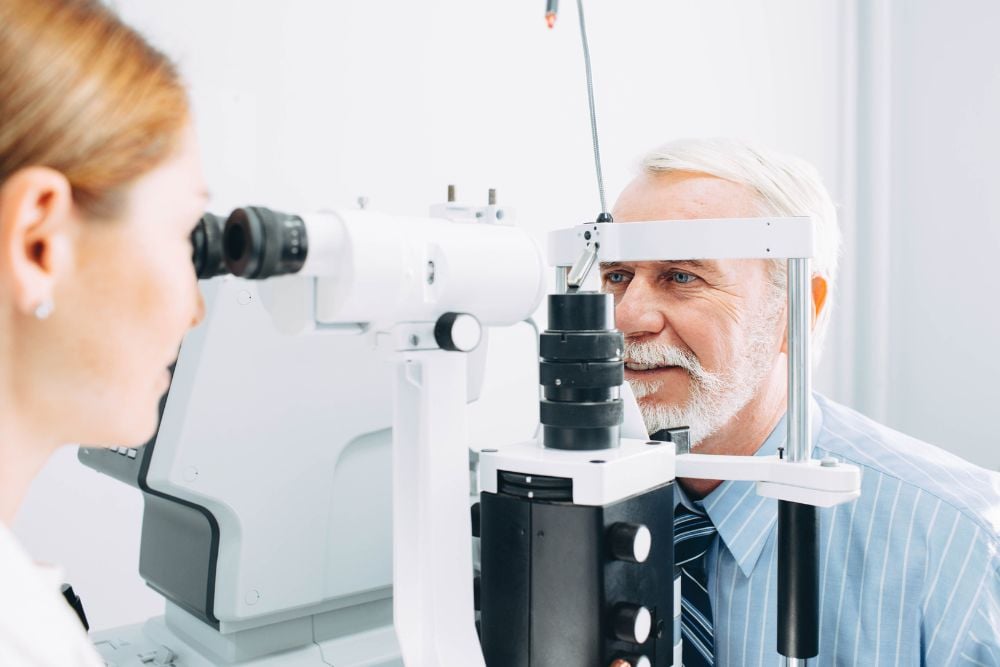How Retinal Health Can Signal Other Medical Conditions

A retinal exam may seem like a routine part of your eye care, but in reality, it can inform you on far more than just your eyesight. The retina—the thin layer of tissue at the back of the eye—is one of the few places in the body where blood vessels can be seen non-invasively, which can show early changes linked to conditions like high blood pressure, diabetes, or autoimmune disease. This makes regular eye exams an important part of protecting both your vision and your overall health.
What Regular Eye Exams Can Reveal
A retinal exam can often uncover important health issues before they cause noticeable symptoms or the diagnosis of a systemic condition. Since the retina’s blood vessels and nerves are directly linked to the body’s circulation and immune system, changes here often mirror what’s happening elsewhere in the body. For example:
- High blood pressure (hypertension): Elevated pressure can cause blood vessels in the retina to narrow, thicken, or leak. These changes can reflect similar vascular strains that may be affecting the heart, kidneys, or brain.
- Diabetes: Elevated blood sugar can damage tiny retinal vessels, indicating early signs of diabetic retinopathy, and more generally, that high blood sugar is damaging circulation.
- Autoimmune disease: Inflammatory conditions like lupus or rheumatoid arthritis can trigger swelling and inflammation in the retina, sometimes offering the first visible sign of an immune system flare.
Spotting these changes during an eye exam gives patients and their doctors a chance to intervene earlier, often before the condition causes lasting damage. Therefore, this early insight not only protects vision but also provides a clearer picture of how well the body is functioning, making regular eye exams an essential part of overall preventive care. For those already living with a condition, regular retinal exams also provide a way to track how well treatment is working and how their condition may be impacting eye health.
A Coordinated Approach
When our specialists notice changes in the retina, we often coordinate with your primary care physician or other providers. This coordination helps to ensure that what’s found in an eye exam contributes directly to your overall care—whether that means adjusting medications, ordering additional tests, or confirming that a treatment plan is working. By linking what’s seen in the eyes with your broader medical picture, we help make your care more connected and comprehensive.
At Southeastern Retina Associates, we’re here to help you stay ahead of potential problems and give you peace of mind about both your vision and your health. Schedule your exam today and take an easy step toward staying well.
